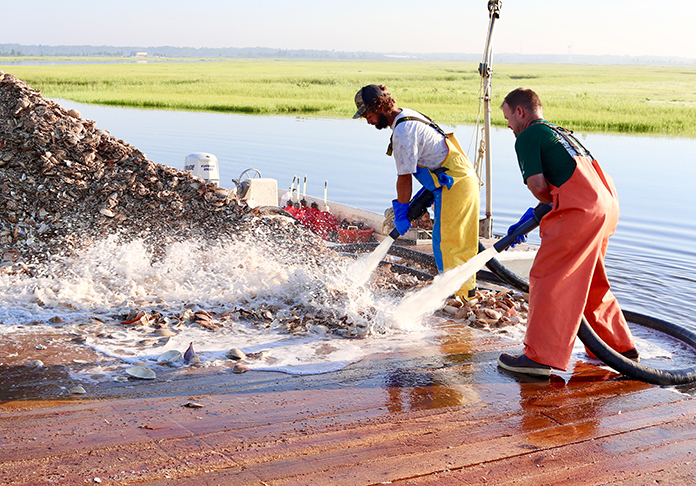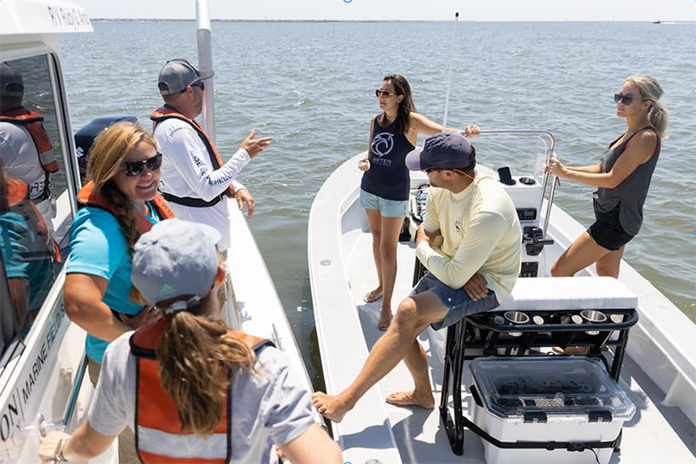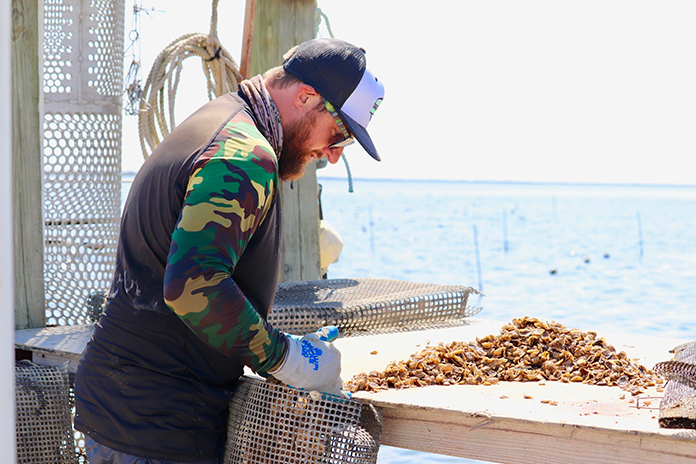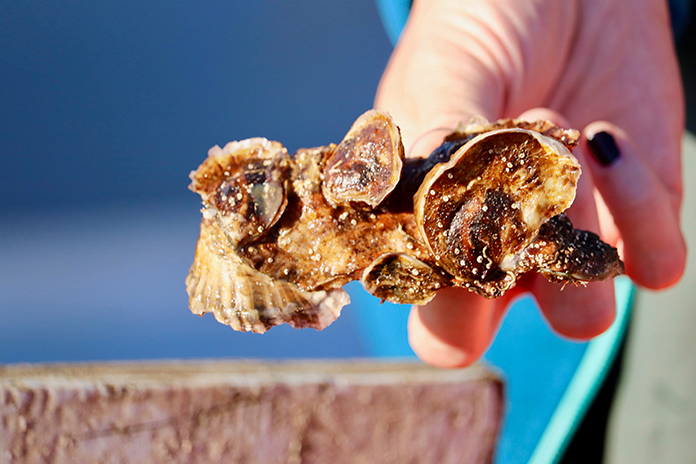
OCEAN COUNTY – Members of the Ocean County Soil Conservation District (OCSCD) and their partners were recently awarded $961,227 for a New Jersey Coastal Aquaculture project.
The Aquaculture project’s primary goals are to promote aquatic habitat on shellfish leases and enhance water quality throughout the coastal bays of New Jersey (with a focus on the Barnegat and Great Bay region) by increasing producer participation in NRCS conservation programs.
“The NJ COASTAL Aquaculture Project presents a rare opportunity to bring together the USDA-NRCS and Federal Farm Bill dollars to support the local aquaculture industry and provide much needed natural resource benefits to the Barnegat and Great Bay region,” Kristin Adams, OCSCD, COASTAL Project Coordinator said.
She added, “shellfish aquaculture is a unique form of agriculture that does not require any inputs (such as feed or fertilizer) to grow a high protein and nutrient-dense food source. Simply by growing filter-feeding bivalves (oysters, clams, scallops, etc.) in the bay, the farmers are helping to improve water quality. Adult oysters can filter up to 50 gallons of water a day, which improves water quality thus benefiting the entire estuarine ecosystem, and the local economy which relies heavily on tourism.”

Adams said, “Oysters and oyster reefs provide many ecosystem services such as water filtration and aquatic habitat. This grant will allow the district to work collaboratively with our 14 partners including state and local government, academia, non-profit organizations and members of industry to bring a new conservation practice scenario to New Jersey.”
She noted that this new scenario will also provide technical and financial assistance to local oyster farmers to raise oyster spat-on-shell (oyster larvae that has attached to recycled shell) on their own lease prior to placing it on a restoration reef managed by the NJDEP or Stockton University.
Adams said, “the COASTAL Aquaculture Project will directly support ‘farming for restoration’ and is truly a win-win for local farmers, the economy, and the health of the ecosystem and watershed. The district is poised to spearhead this unique initiative and looks forward to working with our partners and aquaculture producers to further restoration and enhancement efforts in our region.”
Dale Parsons Jr., the owner of Parsons Seafood, said that since 1909, “Parsons Seafood has maintained a close connection to the bay. As a local family business, we have witnessed an incredible natural resource become reduced to less than 1% the historical numbers.”

“The USDA NRCS program provides the necessary support to help us use our century old knowledge to improve the critically depleted habitat throughout the inshore ecosystem. Our goal is to improve the habitat to a point where the system may become once again self-sustaining,” Parsons added.
“We at the Ocean County Soil Conservation District Board of Supervisors are very proud to be part of the RCPP/NRCS partnership grant award. It demonstrates how our staff continues to make Ocean County a leader in NJ Conservation. We will continue in our efforts to support them as best we can,” said Dr. William J. Pollock, Chair of the OCSCD Board of Supervisors.
Barnegat Oyster Collective Co-Founder Matt Gregg said, “Barnegat Oyster Collective is eager and excited to take part in this pivotal project. Oysters are a keystone species, not just important for the environment, but the economy too. This project will improve habitat but also help oyster farms achieve economic viability.”
“The Jetty Rock Foundation is excited to be partnering on this great project. This grant is directly in line with JRF’s mission to protect our oceans and waterways through restorative aquaculture practices and the usage of oysters to create clean water and habitat,” Jetty Rock Foundation Environmental Director Kyle Gronostajski said.
The partners received the funding for the Regional Conservation Partnership Program (RCPP) project from the United States Department of Agriculture, Natural Resources Conservation Service (USDA-NRCS or NRCS).
Project partners will provide technical assistance and an additional $961,227 in match through cash and in-kind contributions, partners include: NJDEP Bureau of Shellfisheries, NJ Department of Agriculture, Long Beach Township, the Barnegat Bay Partnership, ReClam the Bay, Cape Atlantic Conservation District, Stockton University, Parsons Mariculture, Forty North Oyster Farms/Barnegat Oyster Collective, Jetty Rock Foundation, the Pew Charitable Trusts, Rutgers Cooperative Extension, the Nature Conservancy (NJ Chapter) and the New Jersey Aquaculture Association.

Stockton University Assistant Professor of Marine Science Dr. Christine Thompson said, “we are excited for this collaborative project which will be the next phase for our restoration projects in Barnegat Bay. It will be a great opportunity to work with and learn from local growers as they contribute to restoration practices in the area.”
For additional information about the project or to learn more about the grant program, visit the USDA-NRCS RCPP webpage nrcs.usda.gov/wps/portal/nrcs/main/national/programs/financial/rcpp/or contact Adams at kadams@soildistrict.org.






